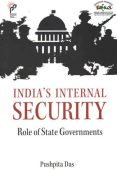Peace Gestures in Manipur: Will it Work?
Gestures for peace talks in Manipur by the government indicate a willingness to engage in dialogue with armed groups, which in itself is a step towards reconciliation. Equally important is to ensure that these gestures are seen as a genuine desire to engage with the real issues.
- Namrata Goswami
- September 23, 2013









